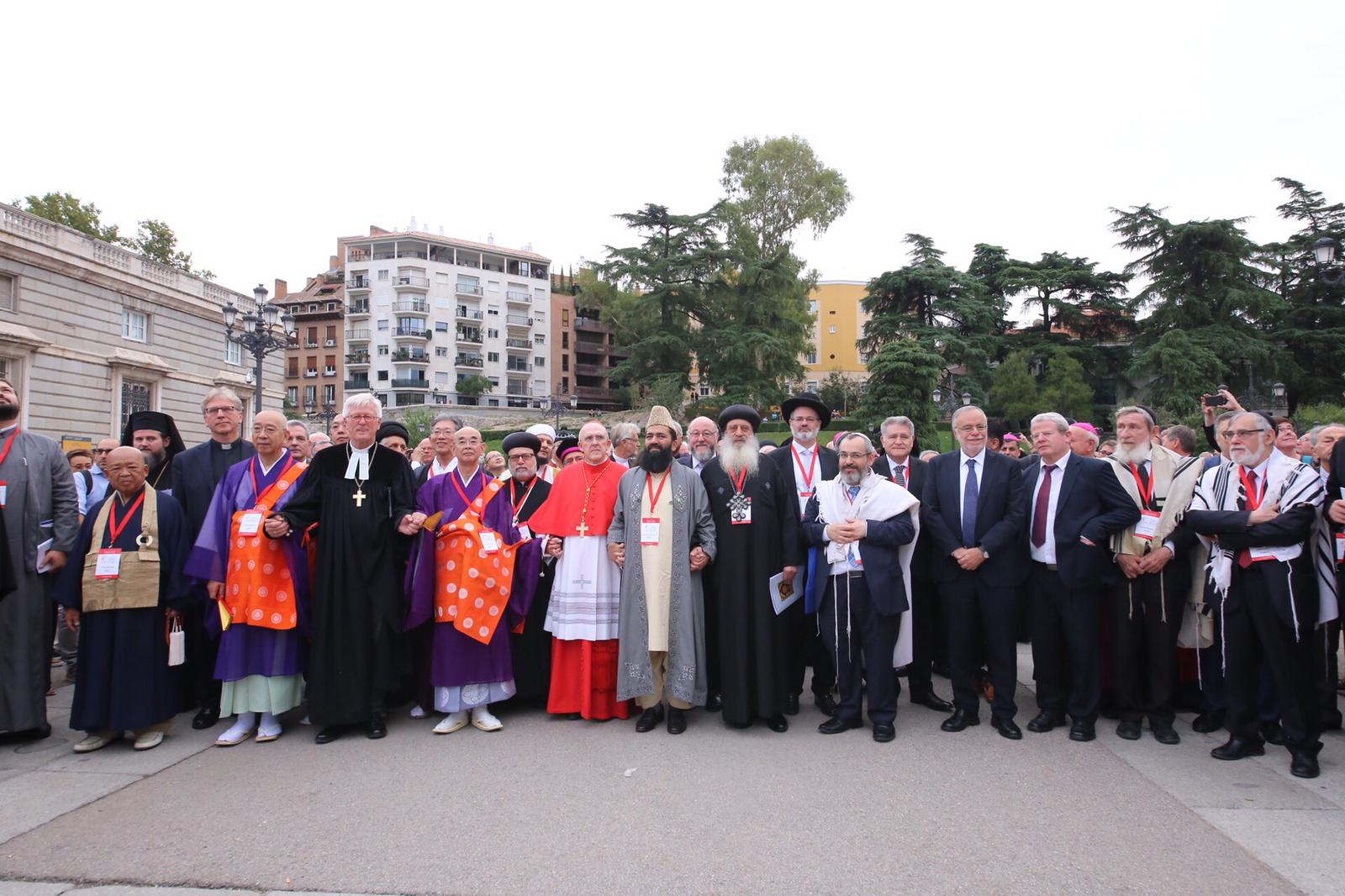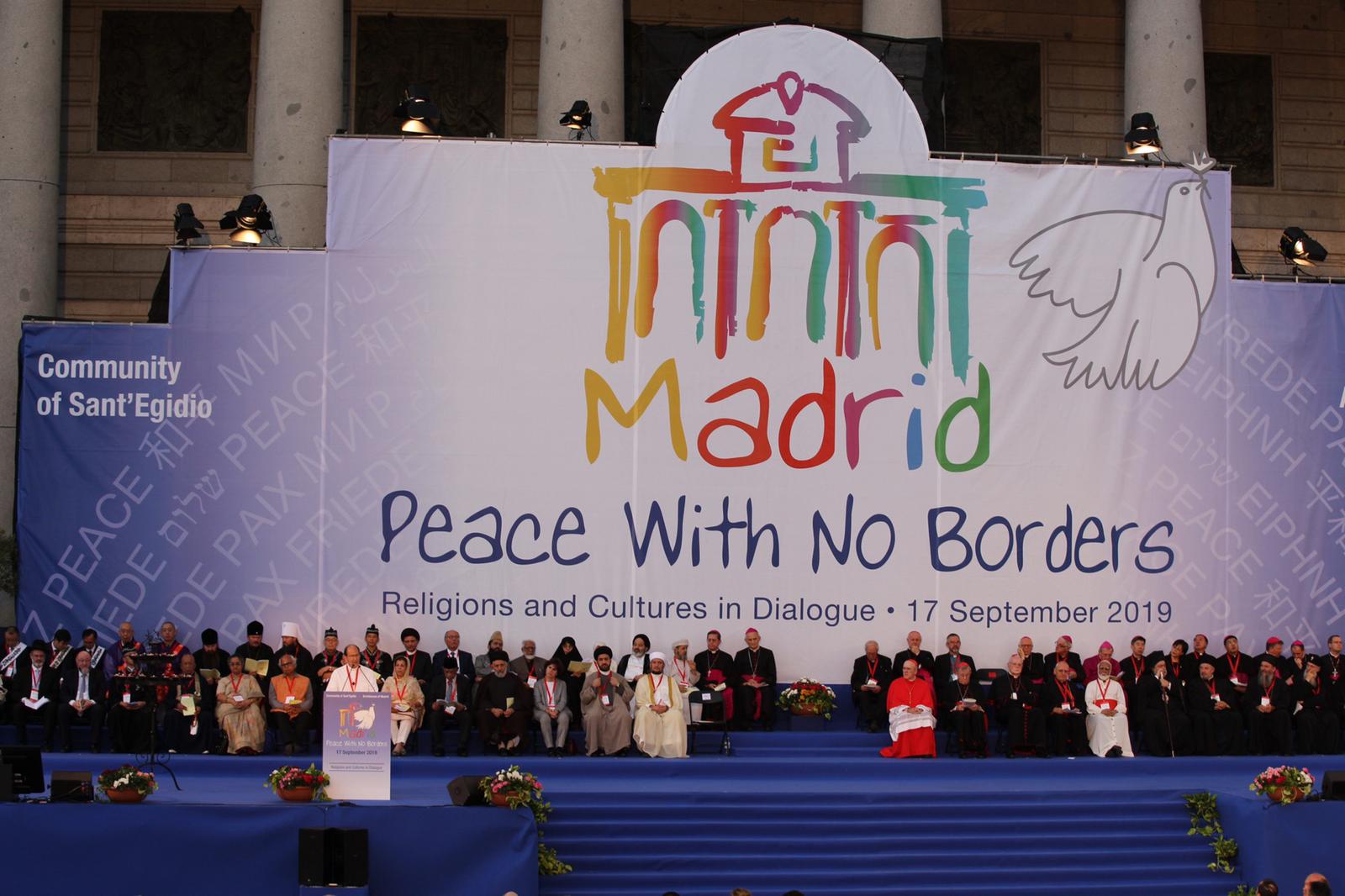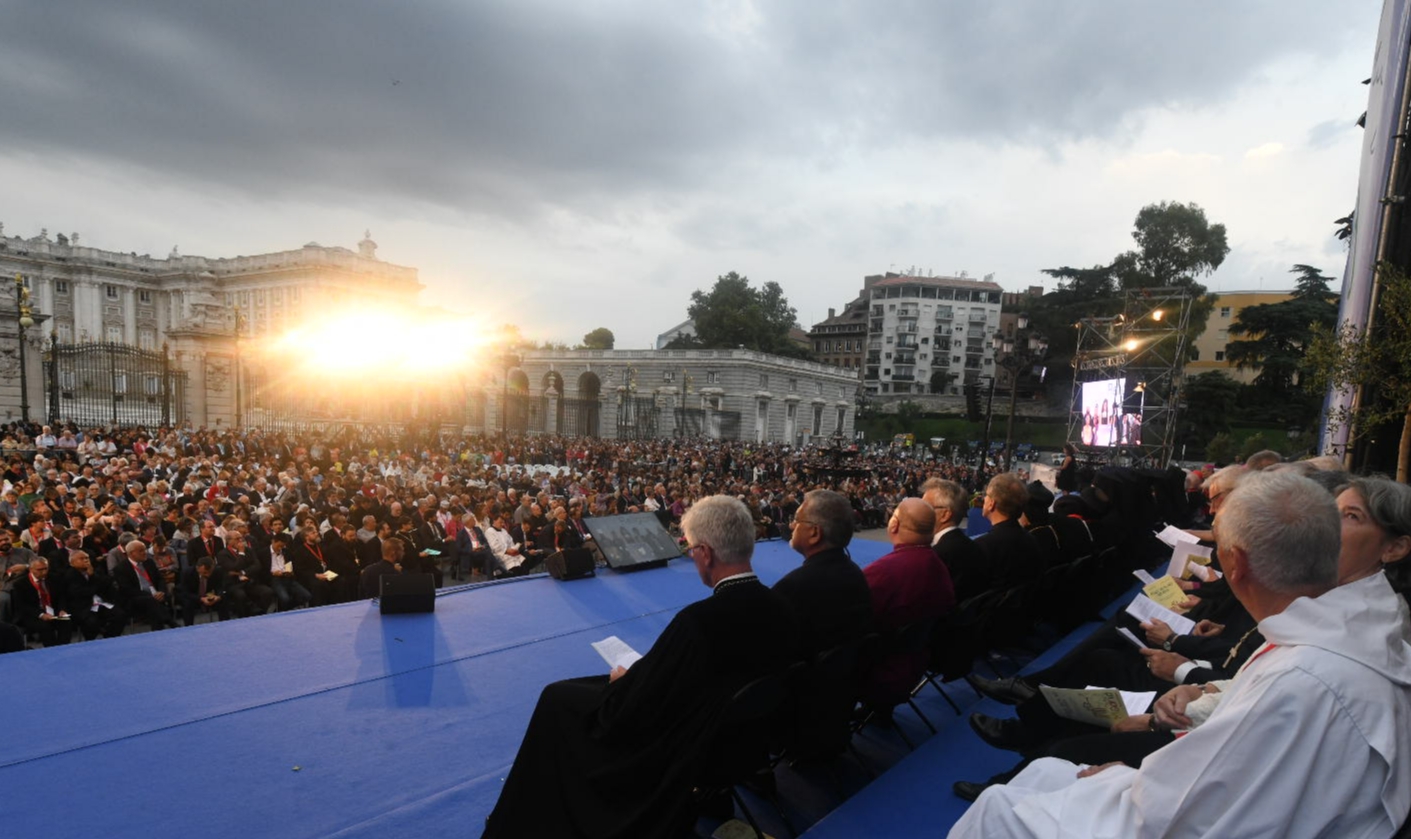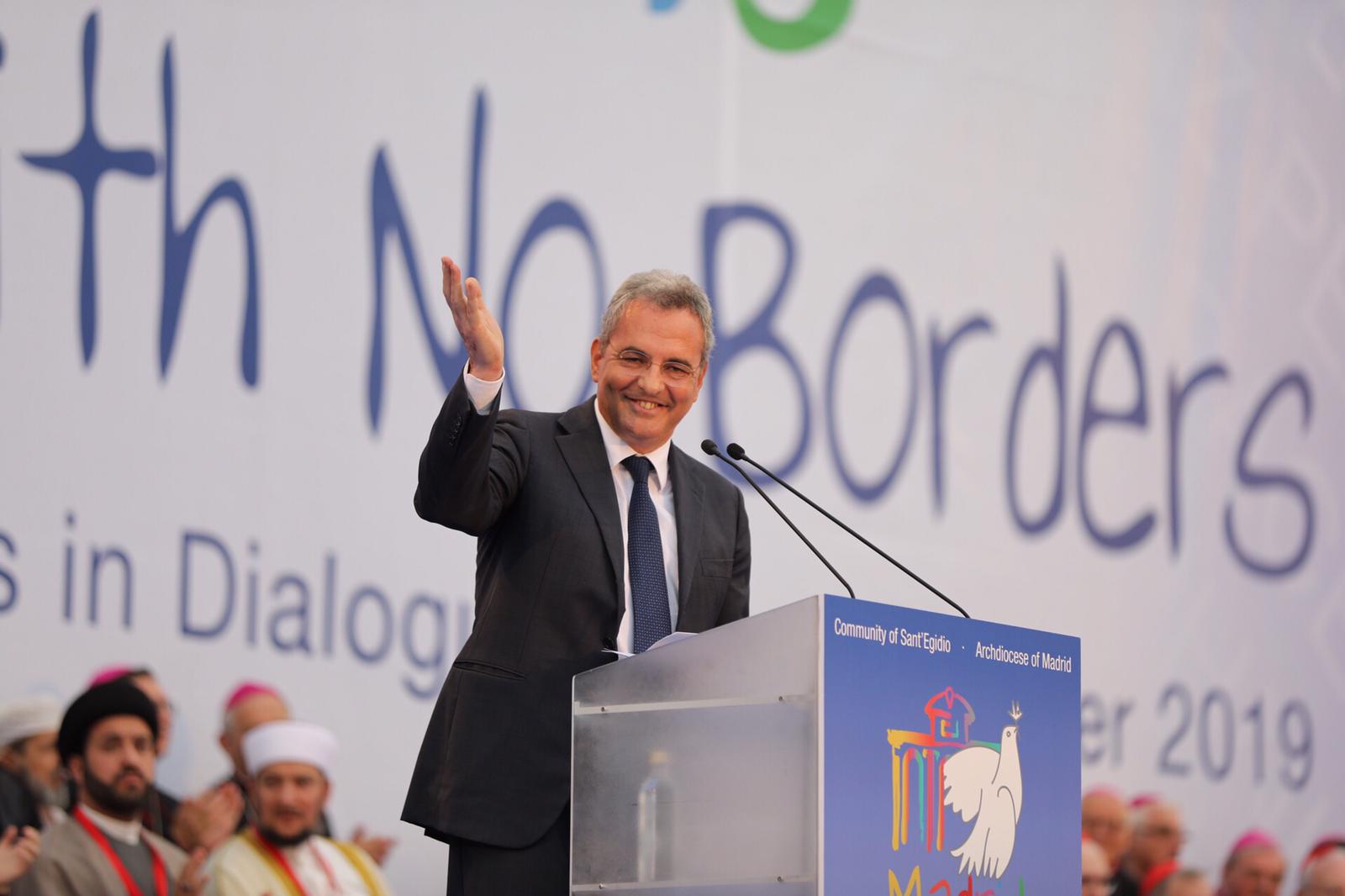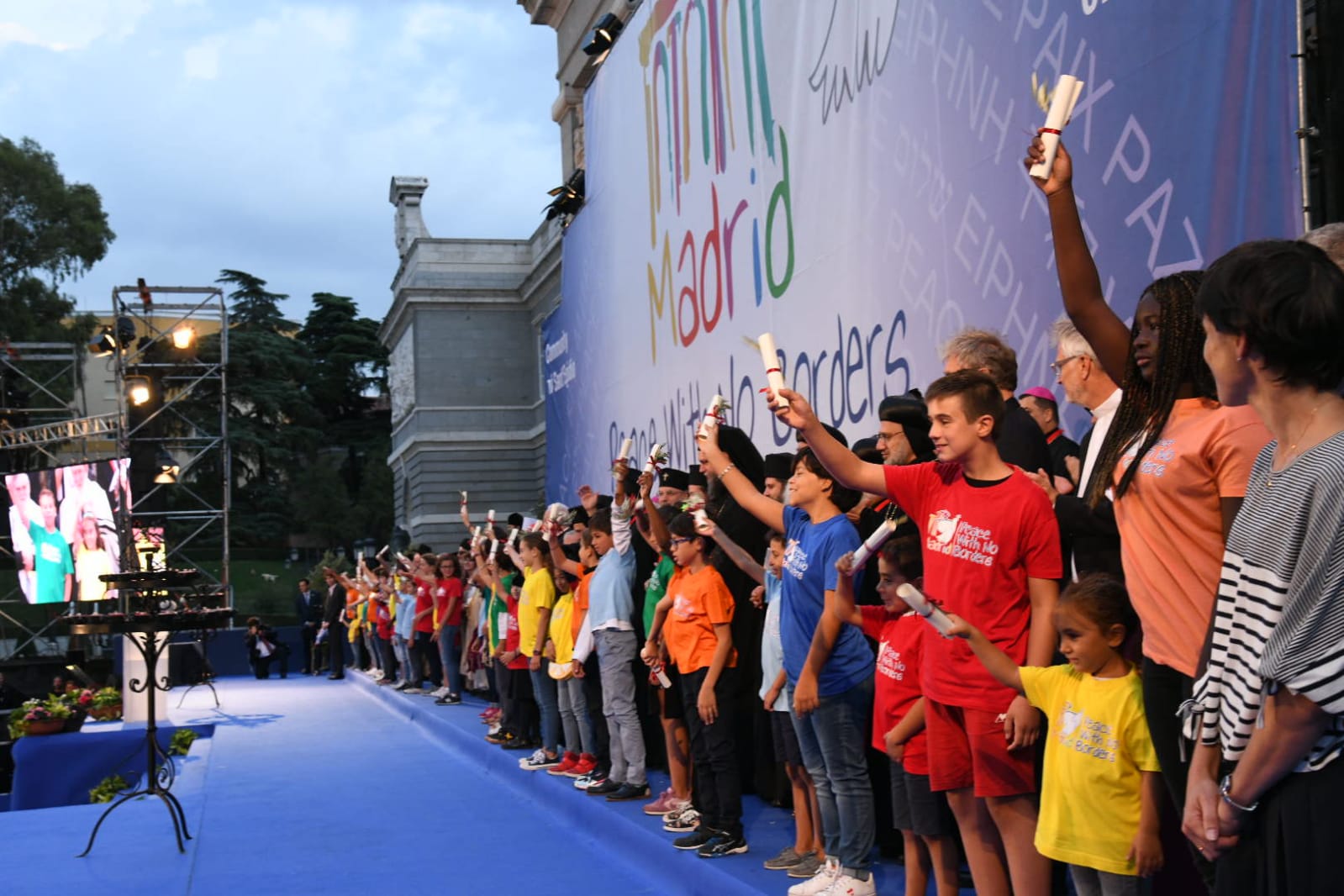
Ladies and gentlemen,
It is a great honor for me to take part in the Peace without Borders conference. At the outset, allow me to express my profound gratitude to the Sant'Egidio Community for organizing and inviting me to this timely event. Now, more than ever, there is need for intercultural and interreligious dialogue to counter the spread of hate and intolerance which is the result of the lack of encounter and exchange.
Dear colleagues,
Twenty-five years ago, extreme expressions of hatred and discrimination resulted in the Srebrenica genocide and the genocide of the Tutsi in Rwanda. The failure of the United Nations and the international community at large in Srebrenica and Rwanda tragedies led to unprecedented efforts to prevent atrocity crimes.
In Africa, the African Union was established in 2001 to replace the Organization of the African Unity (OAU), a body that did also fail the Tutsis in Rwanda by doing very little or almost nothing to prevent the genocide in Rwanda. The Constitutive Act of the African Union, introduced the principle of "non-indifference" to the suffering of the African peoples, giving the right to the Organisation to intervene in "grave circumstances, namely war crimes, genocide and crimes against humanity." This was a significant step by the AU to put in place measures to prevent atrocity crimes.
In 2002, the International Criminal Court came into force to prosecute individuals for the crimes of genocide, crimes against humanity and war crimes. This was the first time that an international permanent court was established to prosecute those with the highest responsibility for international crimes.
In 2004, the late Secretary-General Kofi Annan established the position that I now hold of Special Adviser on the Prevention of Genocide, to act as an early warning mechanism within the UN system and a catalyst for action to prevent genocide and related crimes. Furthermore, in the 2005 World Summit Outcome Document, Members States unanimously adopted a resolution committing to take responsibility to protect populations from genocide, war crimes, crimes against humanity and ethnic cleansing, a principle that has come to be know as RtoP. I currently work closely with the Special Adviser on the Responsibility to Protect. My Office's mandate now focuses on the prevention of genocide, war crimes, crimes against humanity and ethnic cleansing.
In addition, civil society organisations have strengthened their capacities and efforts in the prevention of atrocities crimes and they are increasingly becoming invaluable watchdogs, detecting warning signals, and documenting systematically human rights violations, despite the risks associated with such an endeavor.
Dear Friends,
Despite these international developments in the prevention of atrocity crimes, we have not diminished the risk of recurrence of these horrendous crimes. People around the world - men, women, children and the elderly - continue to be killed, abused, displaced and discriminated against on the basis of their identity. We all have a responsibility to protect populations against atrocity crimes. Central African Republic, the Democratic Republic of Congo, Iraq, Mali, Myanmar, South Sudan, Syria, and Yemen, just to mention some of the most infamous situations, remind us that we have to do more to make prevention of atrocity crimes a reality.
One may ask why are we still seeing so many situations in which atrocity crimes are being committed? It is not because atrocity crimes are not preventable, or we do not see them coming. They do not happen overnight, they take time to prepare and there are many warning signs along the road.
We know what those warning signs are. At the root of atrocity crimes are relations between different groups, based on their identity, and the impact of these relations in terms of access to resources and to decision-making processes. The conflicts that we see today around the world are rooted in identity conflicts; deliberate acts of discrimination and intolerance by some groups against others on the basis of ethnicity or religion; incitement to hatred and hostility against communities based on who they are; and the manipulation of identity for political purposes and economic gain.
This is a growing phenomenon throughout the world, permeating all societies, even those considered as developed democracies in Europe and the Americas. We are witnessing cynical politicians encouraging xenophobia and discrimination against those who look different to gain political power. The victims have primarily been migrants and refugees. We must take action, confront, disrupt and actively counter these tendencies.
Ladies and gentlemen,
States have the primary responsibility for the protection of their populations. It goes without saying that this means all populations within State borders, irrespective of their race, ethnicity, religious beliefs, political affiliation, gender or status. Non-state actors have a similar responsibility when they exercise control over territory and populations. Those with leadership responsibilities have a particular responsibility and must place the lives of their people above any other agenda.
Important initiatives to prevent atrocity crimes have been taken in many regions of the World. Eighteen Latin American States established a network in 2012, with the support of my office and a civil society partner, which is promoting national and regional preventive measures with a particular focus on education and training. This network is notable for another reason, as several members have first-hand experience of atrocity crimes. They not only recognise the importance of prevention but also the important role that transitional justice processes have played in the recovery and reconciliation of their people.
Building regional prevention and response capacity is also critical. Regional organisations can anticipate and respond quickly to developments within their region. It is in their interests to do so. A protocol of the International Conference on the Great Lakes Region deals with the prevention and punishment of genocide, war crimes, crimes against humanity and all forms of discrimination. My office has supported the work of the Regional Committee set up to implement the protocol and the establishment, training and activities of national committees established under the same protocol.
At the United Nations, we continue to fight for the principles we believe in, and advocate for the rights of all peoples to live full lives in a safe and peaceful environment. For this reason, we are constantly reviewing our own mechanisms for early warning and response.
For instance, within the framework of his Reform Agenda the current Secretary-General, Antonio Guterres, has placed prevention at the top of his priorities. In this context, the current administration of the United Nations has introduced regional monthly and regional quarterly reviews to improve the UN's ability to prevent and respond to the escalation of violence in a coordinated and effective way. My Office is deeply involved in the RMR and RQR meetings.
We also have to strengthen those national institutions that are responsible for the protection of populations, ensuring that they place the rights of the people at the forefront and operate with respect for the rule of law. We must build inclusive societies so that there is no home for the kind of grievances that create tensions between communities that can result in threats to peace and security.
Moreover, we must fight impunity for atrocity crimes and bring to justice those with responsibility irrespective of their positions in society. Failure to adequately address the commission of atrocity crimes - to seek the truth about what happened and ensure accountability for those most responsible - leads to a high risk of recurrence of these crimes. There can be no real peace if the past is not dealt with. Justice must be done and must be seen to be done in order to achieve sustainable peace.
Distinguished guests,
I would also like to mention two very important initiatives led by my office. The first one is the Plan of Action for Religious Leaders and Actors to Prevent Incitement to Violence that Could Lead to Atrocity Crimes, also called the Fez Plan of Action. The Plan of Action, which was developed with the help of religious actors from different faiths and beliefs, includes options religious actors - as well as other societal actors - can consider implementing to prevent and counter incitement to violence in situations at risk of atrocity crimes.
The United Nations Secretary-General, Antonio Guterres, urged the widest possible dissemination and implementation of this Plan of Action, which he said, "can help to save lives, reduce suffering, and realize our shared vision of peaceful, inclusive and just societies in which diversity is valued and the rights of all individuals are protected".
My office is currently implementing this Plan of Action, with the support of a Global Steering Committee with a program which focuses on the role of education to foster peace and inclusivity. I call the Sant'Egidio Community to become a member of this Steering Committee. We can surely benefit from Sant'Egidio wisdom and longstanding experience in sustaining peace.
The second initiative my office is leading is the UN Strategy and Plan of Action on Hate Speech which was launched by the Secretary-General on 18 June 2019. This strategy sets out guidance for the UN system to address hate speech at national and global level; to enhance United Nations efforts to address root causes and drivers of hate speech; and enable effective responses by the U N system to the impact of hate speech on societies.
The strategy is in line with international human rights standards, and in particular with the right to freedom of opinion and expression. Indeed, at the United Nations we believe that addressing hate speech does not mean limiting or prohibiting freedom of speech. It means keeping hate speech from escalating, online and offline, into incitement to discrimination, hostility and violence, which is prohibited under international law.
To quote the words of the Secretary-General of the United Nations: "Hate speech is in itself an attack on tolerance, inclusion, diversity and the very essence of our human rights norms and principles [...] it undermines social cohesion, erodes shared values, and can lay the foundation for violence, setting back the cause of peace, stability, sustainable development and the fulfilment of human rights for all.
Brothers and Sisters,
Today's crises are taking place against a backdrop of retreating internationalism, diminishing respect for international humanitarian and human rights law, political disunity in key decision-making bodies such as the Security Council, and a level of defeatism about promoting ambitious agendas like protection.
We must not give up hope, however. While we are seeing many negative trends, we are also seeing cause for hope in the incredible and life-affirming work of individuals, communities and civil society organizations, who risk their lives to prevent violence and atrocity crimes.
Prevention is a collective responsibility and each one of us has a potential to make a positive contribution to this endeavour. It is therefore upon us all to transform this potential into reality. There is no excuse for inaction if we are really committed to leave no one behind.
Let us work together to ensure that all are treated with the dignity and respect that is due, on the basis of our common humanity. We owe it to ourselves and to the future generations. We have the power to rewrite the story of Mankind, to make it a story of resilience and dignity, in which no one fears tomorrow or has to flee their homes and risk their lives to seek shelter in foreign lands. It is all in our hands, we can decide on which side of history we choose to sit, and history will judge us for our choices. We must make "never again" a reality in our lifetime.
Thank you.
